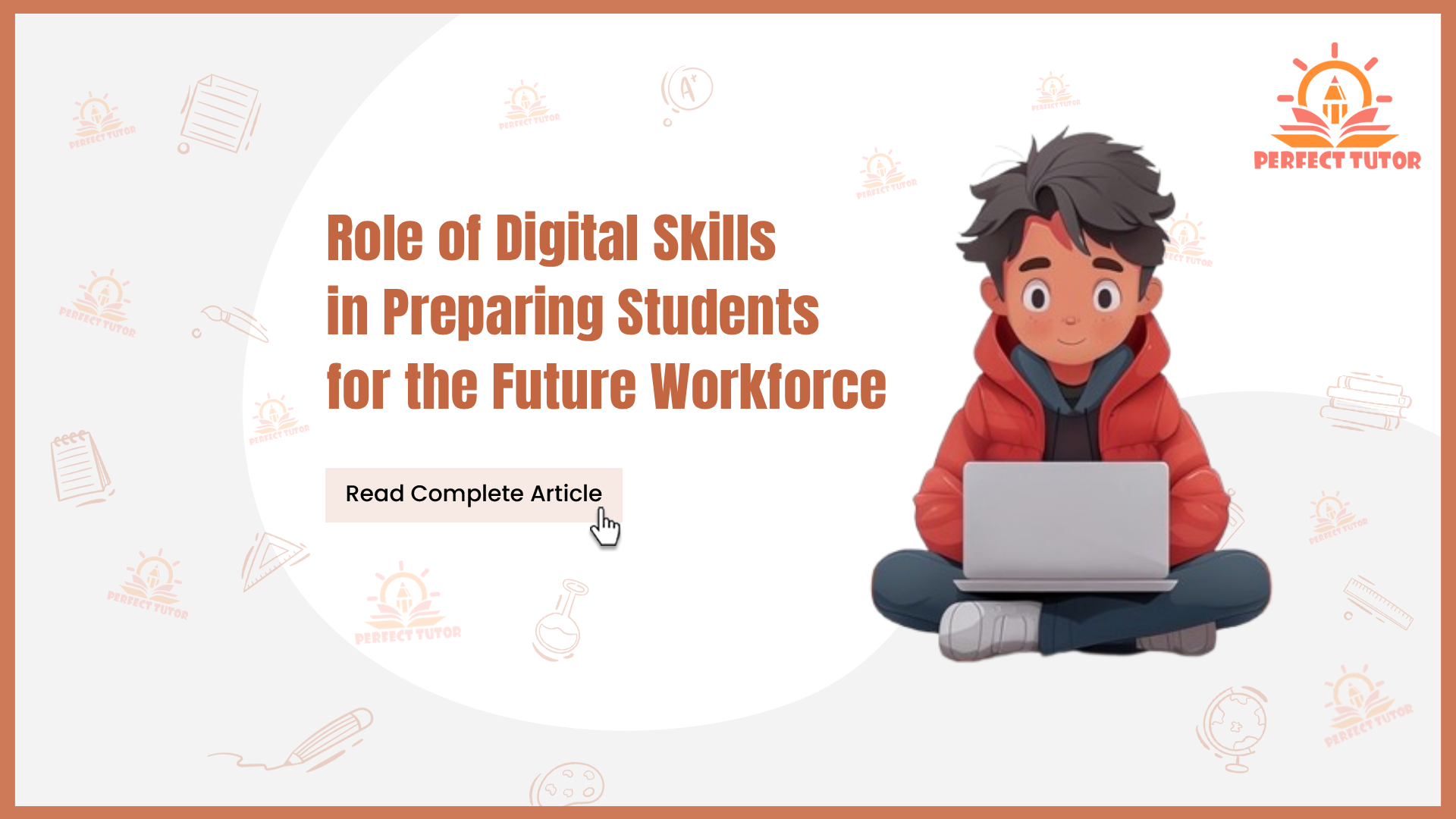Role of Digital Skills in Preparing Students for the Future Workforce
The world around us is changing very quickly. Today, almost everything we do is connected to technology - from shopping and banking to learning and working. For students, learning digital skills is no longer an added benefit, but has become a basic need. These skills help prepare young learners for the kind of jobs that await them in the future. Schools and learning platforms, like Perfect Tutor, are now focusing on teaching students how to use digital tools in a simple and practical way. This not only makes their studies easier, but also prepares them to be confident and ready for the working world of tomorrow.
What are Digital Skills in Simple Words?
When we talk about "digital skills," we simply mean the ability to use computers, the Internet and cell phones in an intelligent way. It’s not about becoming a tech expert. Rather, it’s about knowing how to do everyday things — like creating a document, sending an email, making a presentation, searching for information online, or even taking an online course. These small skills make life easier and help prepare students for the kind of work they will be doing in the future.
Why Are Digital Skills Important for Students?
Digital skills are important because they prepare students for the world they will step into after school or college. Here are a few reasons:
Better chances of getting a job: Most companies today want employees who can use computers and digital tools.
Confidence in learning: Students with digital knowledge can easily attend online classes, prepare projects, and share ideas.
Keeps them updated: Technology changes fast, and having digital skills makes students ready for any new challenge.
Improves creativity: With digital tools, students can design, create videos, or even start their online work.
Global opportunities: A student sitting in India can work or learn from experts anywhere in the world, just by using digital platforms.
How Digital Skills Prepare Students for the Future Workforce
The jobs of tomorrow will not be the same as today. Machines and software are already doing a lot of work, and new types of jobs are being created. Here’s how digital skills help:
Working with technology: Students who know how to use digital tools will find it easier to work in offices, industries, or even from home.
Remote work: Many jobs now allow people to work from home. Without digital knowledge, it is difficult to manage online meetings or team projects.
Freelancing and business: Students with digital skills can also start something of their own, like a YouTube channel, an online shop, or freelance projects.
Global competition: In the future, students won’t just compete with classmates but with people worldwide. Digital skills help them stand strong in this competition.
Simple Digital Skills Every Student Should Learn
Students don’t have to become experts overnight. Starting with simple skills can go a long way:
Basic computer use – typing, making documents, and using spreadsheets.
Online research – finding the correct information on the internet.
Email and communication – writing simple and professional emails.
Creating presentations – making school or college projects using PowerPoint or Google Slides.
Cyber safety – knowing how to stay safe online and avoid scams.
Content creation – making simple posters, videos, or blogs.
Problem-solving with apps – using apps and websites to study better or manage tasks.
How Schools and Colleges Can Support Students
Most children grow up surrounded by phones, televisions, and the internet. But just knowing how to use a phone or play a game is not enough. Schools can step in and show students how to use technology in a smarter way.
Teachers don’t always need fancy tools. Even simple things - like asking students to create a small presentation, search for information online, or practice typing - can help them learn digital basics. When children do these small activities every day, they slowly gain confidence.
Some schools also set up computer labs or digital clubs where students can try out new apps, design posters, or even learn the basics of coding. It feels more like playing than learning, and students pick up new skills without too much pressure.
Most importantly, schools can show students how to stay safe online, as children are often unaware of the risks of the internet. By teaching both the “how to" and the “how to be careful,” schools are preparing them not only for exams, but also for real life.
What Students Can Do at Home
Even at home, students can practice and learn digital skills in simple ways:
Try free online courses on websites like Coursera or Khan Academy.
Watch YouTube tutorials for basic computer and internet use.
Practice making presentations, blogs, or small videos.
Stay updated about new apps and tools.
Create small projects like a personal blog or a simple website.
Challenges in Learning Digital Skills
Of course, there are some difficulties too:
Not every student has access to a computer or good internet.
In some areas, digital education is still not very common.
Many students waste time on social media instead of using technology for learning.
Some teachers are also not fully trained in digital tools.
These challenges can be solved if schools, governments, and communities work together to provide equal digital opportunities to all.
Final Thoughts
The future belongs to students who are not only educated but also digitally smart. Digital skills are no longer “extra knowledge” - they are as important as reading and writing. Students who learn them early will have more job opportunities, more confidence, and more choices in life. Schools, colleges, and platforms like Perfect Tutor can guide students in this journey and prepare them for the workforce of tomorrow.
Digital skills give students the power to build a secure, bright, and independent future.

Please Wait...


 +91 8700847275
+91 8700847275
 +1 8009616567
+1 8009616567